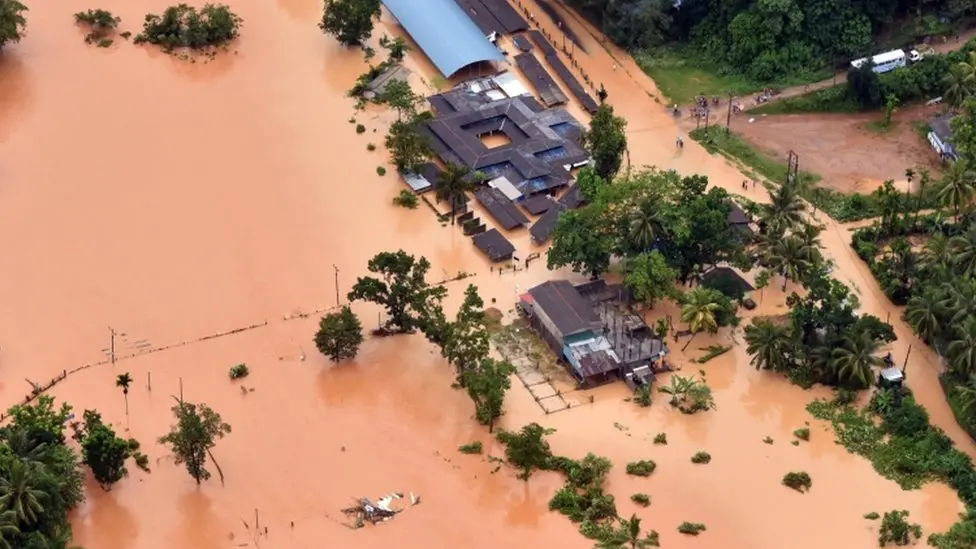Together we have supported 58 people through 41 donations
We are supporting 114 trusted and verified non-profits
Current Appeals
See all



Let’s ensure communities get exactly what they require.
Together we meet unmet needs.
See What’s NeededMeet the current need
Filter
See all
Bra
Quantity Needed: 75
Empowering Girls with Disabilities in Mangochi, Malawi: A Call for Bra Donations<br />The Centre for Disability and Elderly Affairs (CDEA), a leading organization championing the rights of persons with disabilities in Malawi, is launching an urgent appeal for donations of bras to support underprivileged girl children with disabilities in Mangochi, Malawi. This initiative aims to promote inclusive education and empower these girls to reach their full potential.<br /><br />The Challenge<br />Girls with disabilities in Mangochi face significant barriers to education, including lack of access to basic necessities like sanitary wear and undergarments. The unavailability of bras can lead to discomfort, low self-esteem, and reduced participation in school activities, ultimately hindering their academic performance and future prospects.<br /><br />The Impact<br />A simple bra can make a profound difference in the life of a girl with a disability. It can boost her confidence, dignity, and overall well-being, enabling her to participate fully in school and social activities. By donating bras, you'll be contributing to the creation of a more inclusive and supportive learning environment in Mangochi.<br /><br />We're Calling on You!<br />CDEA is calling on well-wishers, individuals, organizations, and corporations to donate new bras (sizes 32A-38C) to support girls with disabilities in Mangochi. Your contribution will help:<br /><br />- Boost confidence and self-esteem<br />- Improve participation in school activities<br />- Enhance overall well-being and dignity<br />- Support inclusive education initiatives<br /><br />Donation Details<br />Donations should be channelled to:<br />Centre for Disability and Elderly Affairs (CDEA)<br /><br />Let's Make a Difference!<br />Join us in empowering girls with disabilities in Mangochi, Malawi. Your donation will have a lasting impact on their lives and contribute to a more inclusive society. Let's work together to create a brighter future for these talented and deserving girls!
Baby bath towel
Quantity Needed: 145
Call for Donations: Baby Bath Towels for Children with Disabilities in Blantyre, Malawi<br />Centre for Disability and Elderly Affairs (CDEA) is appealing for donations of baby bath towels to support underprivileged children with disabilities in Blantyre, Malawi.<br /><br />Many children with disabilities in our communities lack access to basic necessities like hygiene essentials. Baby bath towels are essential for keeping these kids clean, warm, and comfortable.<br /><br />We're calling on well-wishers to donate new or gently used baby bath towels. Your contribution will make a big difference in the lives of these vulnerable children.<br /><br />Donations should be channelled to:<br />Centre for Disability and Elderly Affairs (CDEA)<br />Blantyre District, Malawi<br /><br />Let's come together to support these children!
Computer
Quantity Needed: 2
We require 2 new computers to assist us effectively keep records of our activities of our organization based in Iganga district and also be able to actively engage the visitors for our website i4sl.org on time. we shall be so grateful if a kind person responds tom our need.
Hardware voucher
Quantity Needed: 95
KiwiHarvest is the largest Food Rescue Organisation in New Zealand. We rescue good food that would otherwise go to landfill, sort, repackage and deliver to 235+ recipient agencies throughout New Zealand. Our Auckland Warehouse urgently needs flatpack boxes / cartons to enable our volunteers to package the rescued food for handing out to our recipients. Our volunteers package on average 3150 kilograms of food a day, the equivalent of 7000 meals. We couldn't do this without people.. and boxes!
Bed set - sheets, blanket
Quantity Needed: 74
Sewa Development Trust Sindh (SDTS) is requesting 100 toddler bed linen sets (bed sheet and blanket) for homeless children living in a shelter home in Khairpur, Sindh, Pakistan. These children come from highly vulnerable backgrounds and currently lack basic bedding. Providing proper bed sheets and blankets will help ensure warmth, hygiene, dignity, and safer sleeping conditions, particularly during colder weather. Each set costs AUD 25, with 100 sets requested (total value AUD 2,500), directly supporting 100 homeless toddlers with clean and comfortable bedding.
Feminine hygiene products
Quantity Needed: 900
More than 300 girls at Kilimani Primary School in Elmdy, Isiolo County are facing a quiet but devastating barrier to their education. Because of extreme poverty, many cannot afford sanitary pads. As a result, they miss school each month, fall behind in their studies, and in some cases become vulnerable to exploitation or early marriage simply to meet this basic need. The PAD Drive Campaign seeks to provide sanitary pads, menstrual hygiene education and mental health support so these girls can attend school with confidence and dignity. By meeting this essential need, we help protect their safety, strengthen their wellbeing and keep them learning. When we stand with these girls, we are not just providing supplies. We are safeguarding their futures and affirming their right to education, opportunity and hope.
Our change makers
Sponsored by




